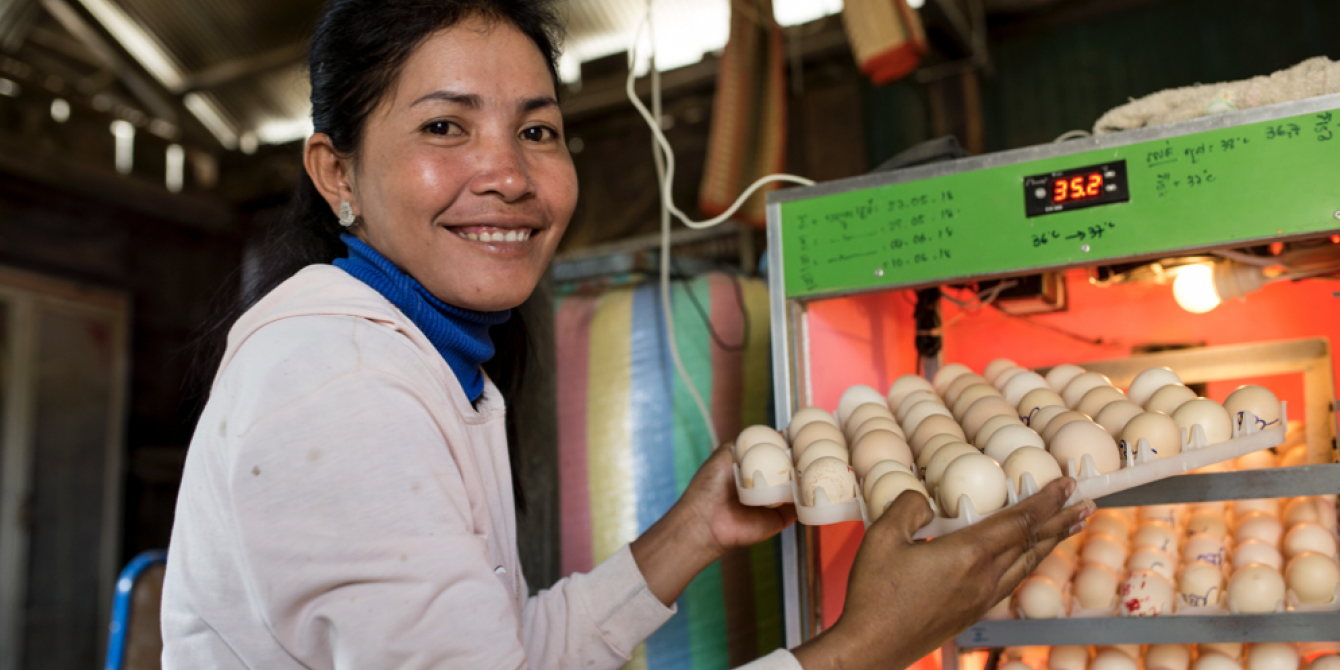ASEAN THROUGH A GENDER LENS
Recommendations for the Full Implementation of the Action Agenda on Mainstreaming Women’s Economic Empowerment in ASEAN

ASEAN’s legal and institutional framework is reviewed through a gender lens to distill recommendations for the ASEAN Comprehensive Recovery Framework. The operationalization of the Action Agenda for Mainstreaming Women’s Economic Empowerment is offered to contribute in ensuring that all ASEAN policies are gender responsive and inclusive. A call to action is made for ASEAN to adopt concrete and measurable actions and indicative activities that mainstream women’s economic empowerment through innovation, trade, and inclusive business.
The Action Agenda on Mainstreaming Women’s Economic Empowerment (Action Agenda) was adopted by ASEAN Leaders on 13 November 2017 to achieve a gender responsive ASEAN Economic Community (AEC) and encourage all ASEAN Member States to mainstream women’s economic empowerment through innovation, trade, and inclusive business.
While a number of ASEAN Member States have initiated efforts on operationalizing the Action Agenda, ASEAN regional work plans and instruments have yet to include indicative activities or goals that promote fair and inclusive labor and employment policies for women, as well as their equal access to the regional marketplace. The economic constraints faced by women were further compounded by the COVID-19 pandemic that exposed vulnerabilities in the social, political, and economic systems, which amplified its impacts, particularly among women and girls. Strategic interventions for women’s economic empowerment can be the next driver of the ASEAN’s post-pandemic recovery and, in order to translate into resilience, these interventions must be inclusive. Women must not be left behind.
Since its establishment in 1967, the ASEAN has enacted policies and installed mechanisms to promote gender equality. It established the ASEAN Socio-Cultural Community (ASCC) as the primary body responsible for crafting gender policies through the ASEAN Ministerial Meeting on Women (AMMW), the ASEAN Committee on Women (ACW), and the ASEAN Commission on the Promotion and Protection of the Rights of Women and Children (ACWC). Since 1988, the ASEAN has promulgated various declarations to promote women’s rights that were eventually operationalized through the ACW Workplans for 2011–2015 and 2016–2020. ASEAN Member States have also committed as parties to the Convention Against Elimination of All Forms of Discrimination Against Women (CEDAW), the Beijing Declaration and Platform for Action, and the Sustainable Development Goals. This progression of affirmative actions has culminated in the adoption of the Action Agenda and the “ASEAN Declaration on Gender-Responsive Implementation of the ASEAN Community Vision 2025” and Sustainable Development Goals”.

 Follow us on Facebook
Follow us on Facebook Instagram
Instagram Follow us on Twitter
Follow us on Twitter LinkedIn
LinkedIn